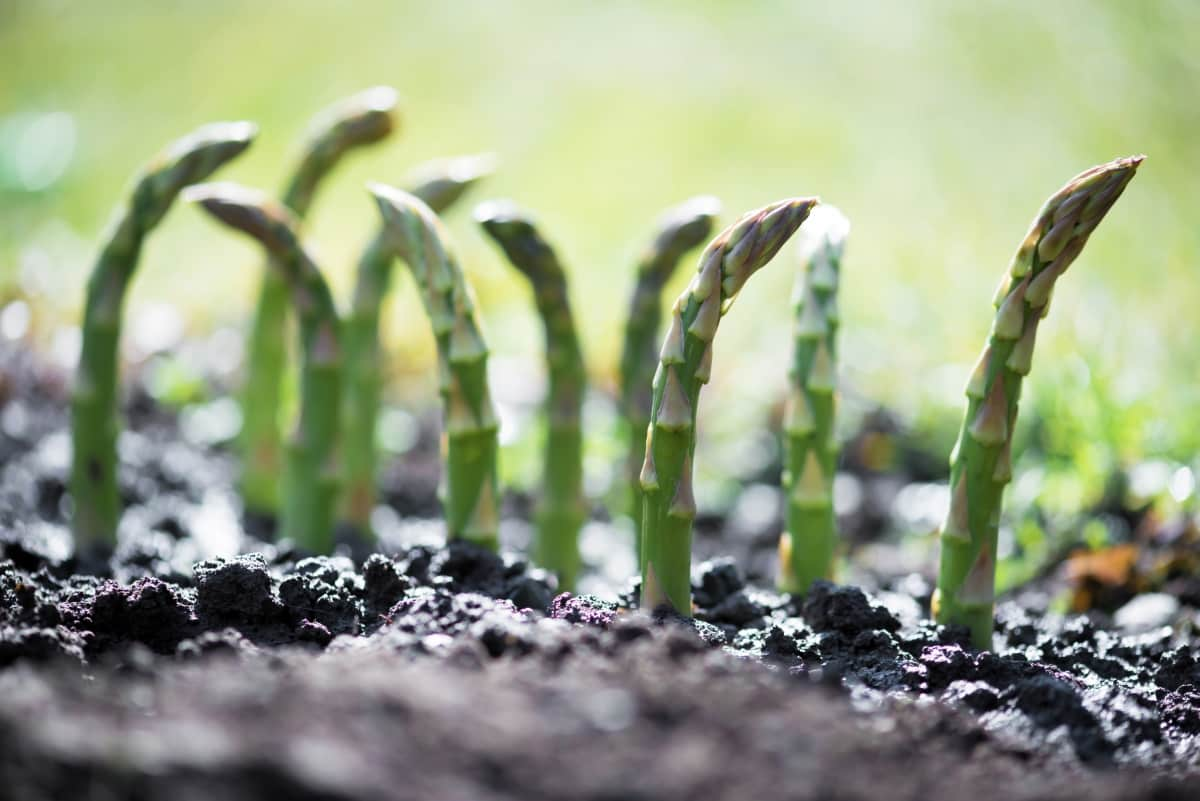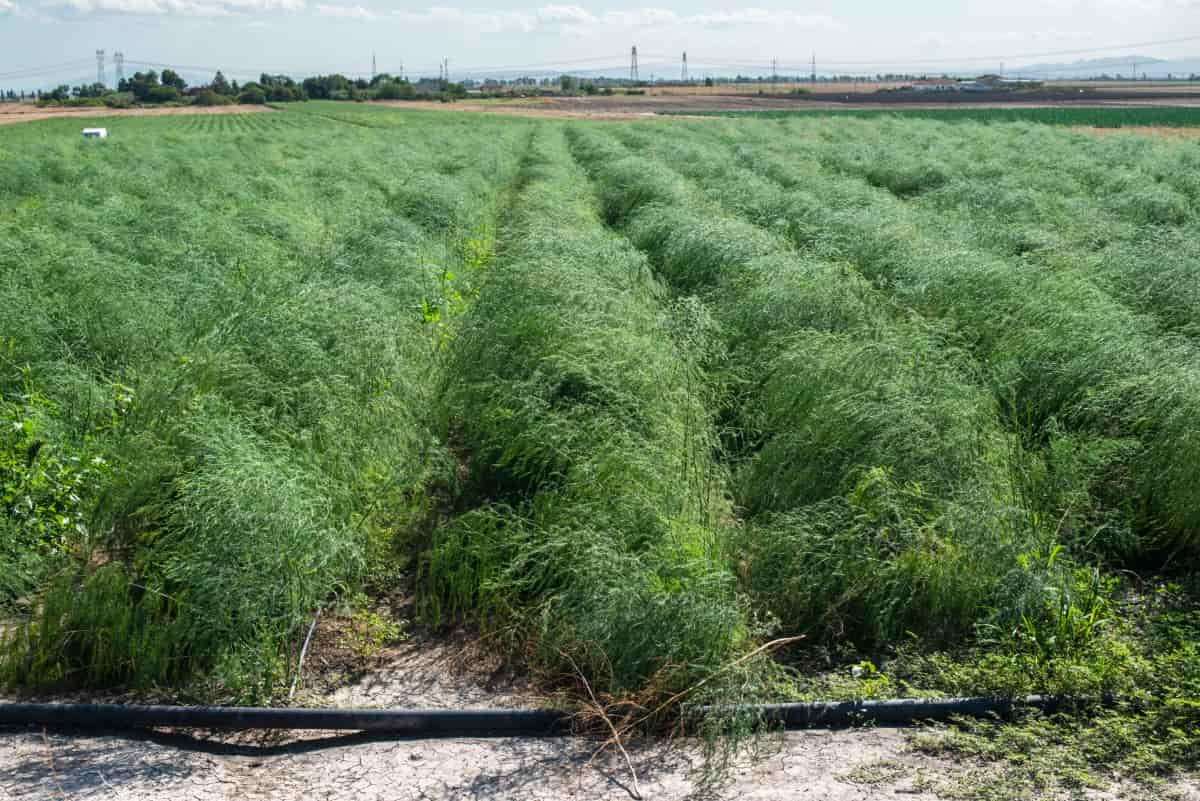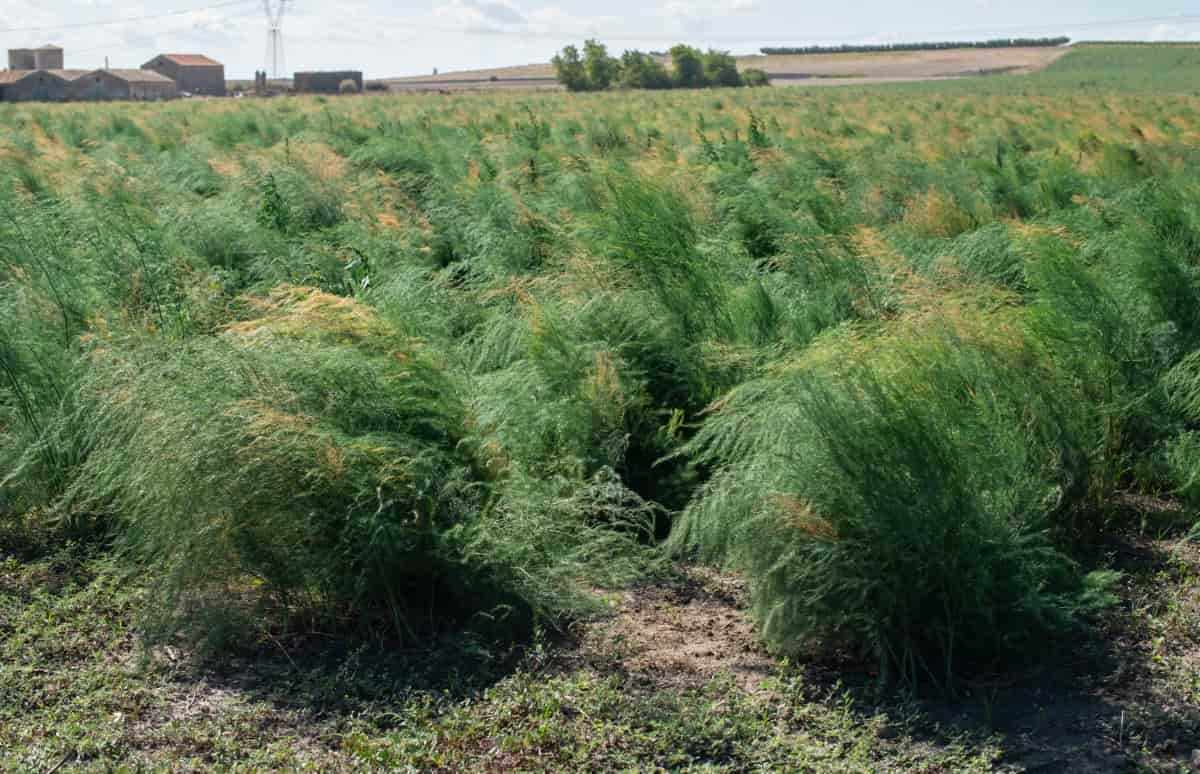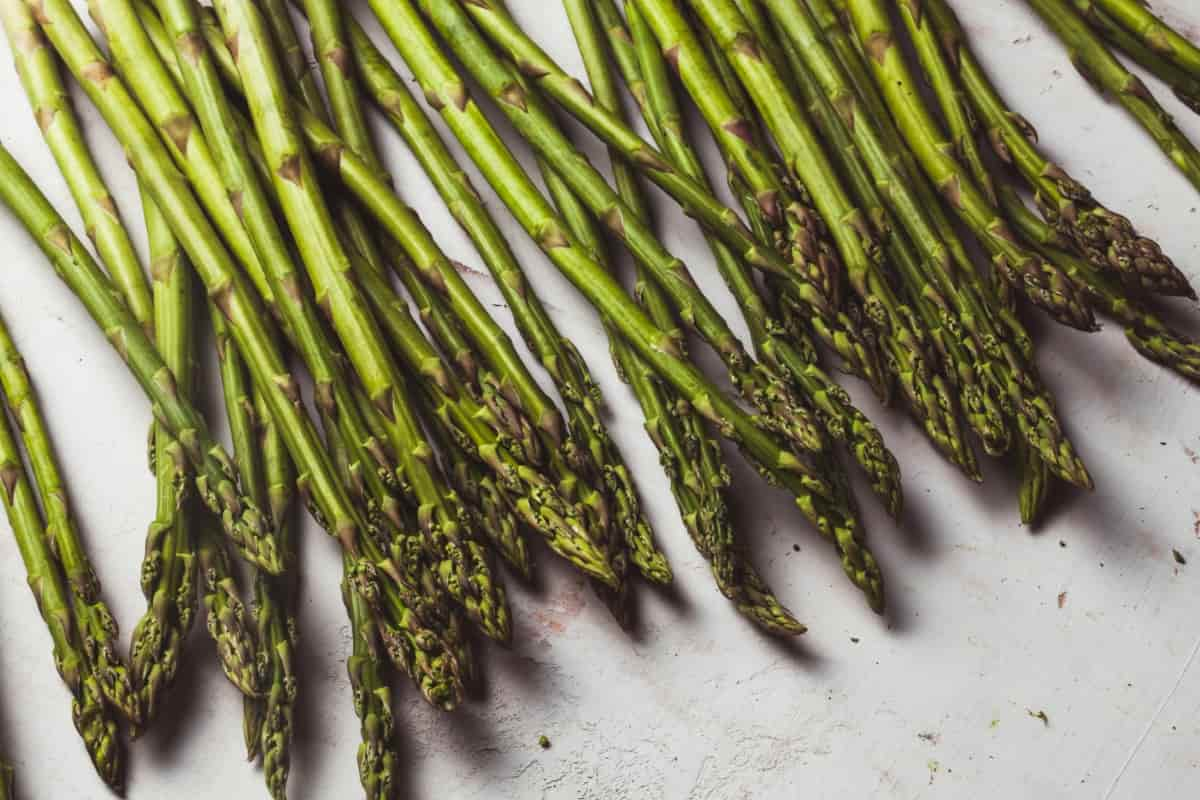Dealing with pests in your asparagus garden can be challenging, but with the right strategies, it’s possible to manage them effectively using natural, homemade remedies. Whether you’re facing the common asparagus beetle, battling aphids, spider mites, caterpillars, or trying to prevent fungal infections and slug invasions, natural solutions like homemade sprays, soap and water, neem oil, cayenne pepper, sulfur powder, and diatomaceous earth can be highly effective.

These methods not only help in controlling pests but also ensure the safety of both your plants and the environment. In this article, we’ll explore various natural techniques to protect your asparagus plants from these common pests.
How to Control Asparagus Pests Naturally
Make Homemade Traps to Get Rid of Beetles on Asparagus Plants
Creating homemade traps is a practical and environmentally friendly way to combat asparagus beetles. One effective method is to use a homemade spray for asparagus beetle, which can be made by mixing water with a small amount of dish soap and vegetable oil. This mixture, when sprayed directly on the beetles, suffocates them.
Additionally, setting up sticky traps around the plants can capture these beetles effectively. To enhance the trap’s effectiveness, combine it with plants that repel asparagus beetle, such as marigolds or garlic, planted around your asparagus. This two-pronged approach will help reduce the beetle population without resorting to harsh asparagus beetle pesticides.
Repel Aphids by Using Soap and Water on Your Asparagus
Aphids, small sap-sucking pests, can be a nuisance on asparagus plants. However, a simple solution of soap and water can be remarkably effective in repelling them. Combine a small amount of gentle liquid soap with water, then apply the mixture directly onto the aphids using a spray. The soap breaks down their protective layer, leading to dehydration and death. This method is gentle on the plants but lethal for the aphids, ensuring your asparagus remains healthy and bug-free. Regular application is key to keeping aphid populations under control.
Use Homemade Neem Oil Spray to Control Spider Mites on Asparagus
Spider mites can be particularly troublesome, but the use of homemade neem oil spray offers an organic solution. Neem oil, extracted from the neem tree, functions as a natural pesticide by interrupting the reproductive cycle of pests such as spider mites. To prepare the spray, mix neem oil with water and a mild soap to help it adhere to the plants. This spray not only kills spider mites but also prevents their return, making it a sustainable option for long-term pest management. Regular application of this spray can keep your asparagus plants mite-free.
In case you missed it: How and When to Fertilize Asparagus Plants: Requirements and Recommendation

Keep Caterpillars Away from Asparagus Using Cayenne Pepper
Caterpillars can cause significant damage to asparagus plants. A natural deterrent is to use cayenne pepper, which can be sprinkled around the plants or mixed with water to create a spray. The pungent aroma and flavor of cayenne pepper deter caterpillars effectively. This method is safe for the plants and the environment, offering a non-toxic way to protect your asparagus from caterpillar damage.
Treat Fungal Infections on Asparagus With Sulfur Powder
Fungal infections can be a serious threat to asparagus plants. To combat this, sulfur powder can be used as a natural fungicide. Applying sulfur powder directly to affected areas helps in preventing the spread of fungal diseases. This treatment is particularly effective in dry weather conditions and should be used with caution, as over-application can harm the plants. Regular monitoring and early treatment with sulfur powder can keep fungal infections in check.
Control Slugs and Snails on Asparagus Using Diatomaceous Earth
Slugs and snails are common pests in asparagus gardens. Diatomaceous earth, a natural powder, is an effective method for pest control. Apply it around the base of your asparagus plants to create a barrier. The sharp particles in diatomaceous earth pierce the pests, leading to dehydration and eventual death. This method is safe for the plants and the surrounding environment, offering a natural way to protect your asparagus from slugs and snails.
Repel Pests from Asparagus with a Mixture of Garlic and Water
Garlic water is a potent, natural remedy for repelling a variety of pests from asparagus plants. To make this mixture, crush several cloves of garlic and steep them in boiling water, allowing the mixture to cool before straining. The resultant garlic-infused water can be sprayed directly onto asparagus plants, creating an effective barrier against pests. The strong odor of garlic is unappealing to many insects, including asparagus beetles, aphids, and caterpillars, making it a versatile tool in your pest control arsenal.
In case you missed it: Asparagus Companion Plants: What and What Not to Grow with Asparagus

This method is safe for the plants and beneficial insects, and its regular use can significantly reduce pest infestations. Additionally, garlic water acts as a mild natural fungicide, offering some protection against fungal diseases. Its ease of preparation and application, combined with its environmental safety, makes garlic water an excellent choice for organic gardening enthusiasts seeking to protect their asparagus crops.
Use Lemon Juice to Control Asparagus Beetles and Other Pests
Lemon juice, with its natural acidity and strong scent, is an effective organic solution for controlling asparagus beetles and other garden pests. To utilize this method, mix fresh lemon juice with water and a small amount of mild soap to help it adhere to plant surfaces. This mixture, when sprayed onto asparagus plants, acts as a deterrent for asparagus beetles, aphids, and other pests. The acidic nature of lemon juice can disrupt the pests’ outer layers, leading to their demise.
Moreover, the citrus scent of lemon is a natural repellent, keeping pests at bay. Regular application of this lemon juice mixture can significantly reduce pest populations, and its natural composition ensures that it is safe for both the plants and the environment. This method is particularly appealing to gardeners who prefer to use readily available, non-toxic ingredients in their pest control practices.
Treat Root Rot in Asparagus Plants with Copper Fungicide
Copper fungicide is a reliable and effective treatment for root rot in asparagus plants, a common problem caused by fungal pathogens in the soil. To use this treatment, apply copper fungicide as directed on the product label, typically by mixing the powder with water and applying it to the soil around the asparagus plants. Copper fungicide works by creating a protective barrier that prevents the fungus from infecting plant tissues. This treatment is especially useful in damp conditions where root rot thrives.
In case you missed it: How to Grow Asparagus Hydroponically: A Step-By-Step Guide

It’s important to apply copper fungicide at the first sign of root rot to prevent further spread and damage. While copper is a naturally occurring element and generally safe for plants in controlled amounts, it’s crucial to use it judiciously to avoid potential toxicity to the soil and surrounding environment. Regular monitoring of asparagus plants for signs of root rot and timely application of copper fungicide can help ensure a healthy, productive asparagus garden.
Conclusion
Natural remedies like garlic water, lemon juice, and copper fungicide offer effective, environmentally friendly solutions for pest and disease control in asparagus gardens, ensuring the health and productivity of your plants without resorting to harsh chemicals.
- Feed Your Flock for Less: Top 10 Tips to Save on Chicken Feed
- Ultimate Guide to Ossabaw Island Hog: Breeding, Raising, Diet, and Care
- Hatching Answers: The Top 10 Reasons Your Chickens Aren’t Laying Eggs
- Eggs and Economics: Breaking Down the Cost of Raising Backyard Chickens
- Defend Your Greens: Proven Methods to Keep Iguanas Out of Your Garden
- Ultimate Guide to Cinnamon Queen Chicken: A Comprehensive Guide for Beginners
- Ultimate Guide to California Tan Chicken: Breeding, Raising, Diet, Egg-Production and Care
- Ultimate Guide to Marsh Daisy Chicken: Breeding, Raising, Diet, and Care
- 10 Types of Chicken Farming Businesses You Can Start for Profits